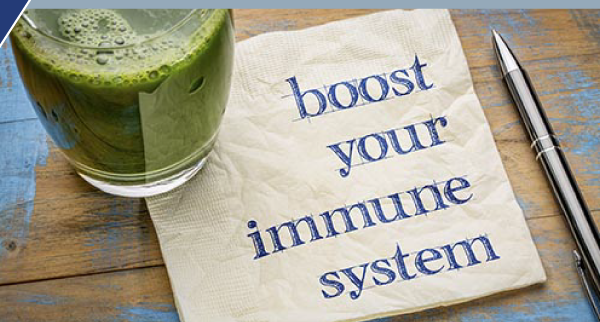
Though it should be taken seriously, COVID-19 caused by the coronavirus is only one of a slew of viruses spreading around this winter in the United States. The Centers for Disease Control has issued infection prevention habits to curb the spread of the virus around our communities. These recommendations include washing your hands with soap and warm water for 20 seconds or more and avoiding going out when you are feeling ill.
These recommendations only scratch the surface of disease spread and prevention. Our body has a powerful ability to identify and manage foreign invaders like viruses and bacteria. The immune system is a complicated and elegant process that, when functioning correctly, can keep germs from multiplying and spreading and causing serious complications.
We want to add to the CDC list of disease prevention habits with some additional recommendations for maintaining or improving our body’s natural, healthy immune response. Taking measures to maintain a healthy immune system not only prevents severe complications from viruses like COVID-19 but also ensures that we are healthy and robust to take care of others who might not be able to fight off infections.
Stay Hydrated
Water is essential for life; it makes up the vast majority of our bodies. Without water, humans can survive only four (4) days. Becoming dehydrated not only impacts your physical functioning, but it also can have adverse effects on mood and mental functioning. Being fully hydrated helps your liver, kidneys, and gastrointestinal system function properly so that your body can flush out toxins and infections. To ensure you are staying adequately hydrated, make it a point to have 8-10 full glasses (8 oz) or more of water each day.
Eat Healthy Foods
It’s easy to slip into a comfort food habit when we are feeling stress or are locked up in our houses watching a never ending news cycle. Instead of reaching for those chips in the pantry, that candy hidden in the drawer, or ordering that pizza for delivery, focus on eating as many fruits and vegetables as you can into your daily meals. The more color and variety, the better for your immune system. The vegetables and fruits of our diets offer essential vitamins and minerals that support our body’s immune function and immune response.
Reduce Stress
There is no longer any question that our minds and our bodies are linked, and that stress (whether real or perceived) has a negative effect on health and immune function.
We know it’s easier said than done, but try not to “worry” about the spread of COVID-19. The act of worrying doesn’t benefit you unless that “worry” instinct is quickly transformed into action to take care of yourself, your family, and your community.
Studies have shown that a higher level of daily stress increases the risk of disease as much as smoking and poor diets. Don’t be fooled that your ability to “handle” stress means you don’t have stress. Just because you can stay productive in the face of stressful situations or feelings doesn’t mean that the adverse effects of stress aren’t felt by your body.
Take measures now to reduce unnecessary stressors in your environment. If the news or the internet is raising your stress level, then it isn’t doing you much good to “stay in the know,” instead turn off the TV and put away your phones. If you have to check-in, then do so only at certain times of the day and only for a prescribed period (15 minutes).
Find time for quiet and allow your mind and your body to relax. Take a nap or meditate for 15 minutes. These periods of stress reduction can work wonders for your immune system and for your ability to respond clearly and effectively to real stressors that show up in your daily life.
Move Around, Elevate Your Heart Rate
Your routines might change in the face of a viral outbreak such as COVID-19, but don’t let that disruption in routine impact your regular exercise routine. Moving around and elevating the heart rate will keep your circulation moving. A healthy circulation goes a long way towards responding to and eliminating infections and toxins from the body.
Get Enough Sleep
You may already notice that you catch colds more easily if you haven’t been sleeping well. This should be your first hint that getting enough sleep has positive effects on your immune system. Not sleeping enough also increases stress hormones in the body, and we already know what stress can do to your immune system. Most people should shoot for 7-9 hours of quality sleep each night.
To help your body get to sleep, reduce your exposure to blue lights from phones and computers for 1 hour before bedtime. Also, avoid eating within two hours of bedtime to prevent GI distress from interrupting your sleep. Lastly, try to keep your regular sleep habits even if other routines have flown out the window. Go to bed and wake up at generally the same time every day.
